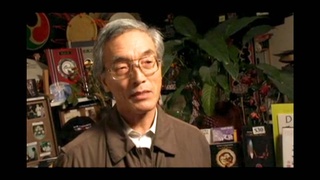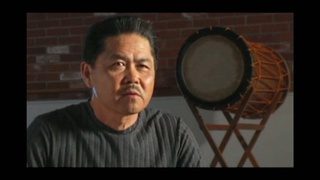Interviews
Understanding Sansei taiko (Japanese)
(Japanese) As I remember, when we were kids in Japan it was sort of expected to follow certain ways, you know-following the tradition, to dress in kimono or happi-coat. But over here, folks don’t seem to care that much about tradition. They do it in their own style, don’t you think? Being different from the way they’re done in Japan, it used to seem kind of odd to me but now that I’ve gotten used to it and now it looks ok in their own way. I feel why should we get so sticky about the form. Japanese art, I think, is too concerned about the form anyway.
So, as Sansei groups begin to perform traditional Japanese art that tends to expand the scope of these traditional art forms. That’s why when the Kinnara group began performing. I used to criticize them about the form but now... Johnny Mori has all the essentials in place and I think he is really cool now. He wears the happi-coat in the right form, you know.
Date: January 27, 2005
Location: California, US
Interviewer: Art Hansen, Sojin Kim
Contributed by: Watase Media Arts Center, Japanese American National Museum.







